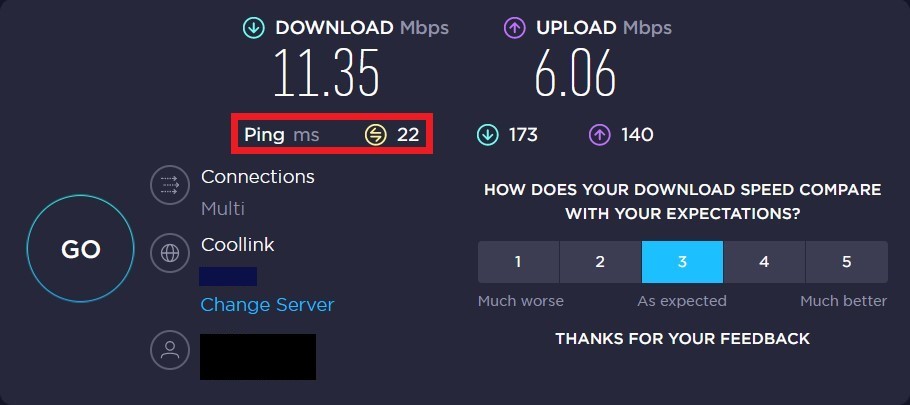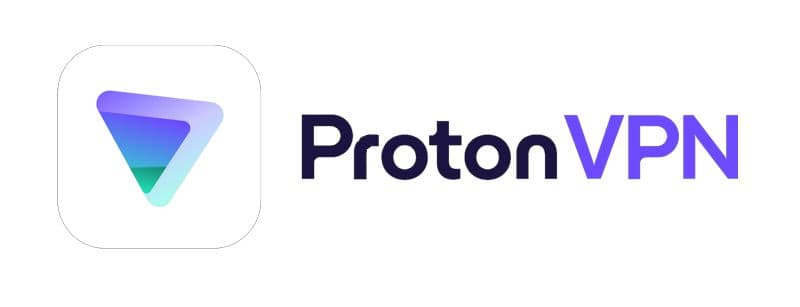Why Does a VPN Slow Down Internet?


The two important characteristics are bandwidth (usually measured in Mbps, as in megabits, not to be confused with megabytes) and ping. A high ping – usually anything over 100 – will add a delay to any action you do online. This is usually important if you do graphics-related work on a cloud desktop, or do cloud gaming. A sufficient bandwidth is required for downloads and video streaming, especially high-intensity streaming, like cloud VR.
A connection can also be high-bandwidth and low-ping, but unstable. This can be detected by running the ping command on Linux or ping -t on a Windows desktop. If the ping keeps jumping, or packets get lost altogether, you have an unstable connection.
Figured out the problem? Check out solutions for:
Improving Your Ping
If you need the fastest response possible, you need the packets to cross the fewest servers possible, and spend the least time at each stop.
– Choose a different VPN server
Your connection can take different paths, and certain servers can cause the path to be very inefficient, either due to problems with local internet providers, local outages, or poor configuration. Try several different VPN servers if they are available.
– Change encryption settings
The act of encrypting and decrypting takes time, and the milliseconds it adds to the ping can sometimes make all the difference. Note that disabling encryption is not safe on a public network – only configure it at home, and never reduce it when you work over VPN!
– Change your server region
Depending on the distance between you, the location of the VPN server, and the destination, the route can be more than double as long as a direct connection. Make sure to avoid this by checking out the world map.
Clearing Up Bandwidth
– Try a different server
One of the servers on the way to your destination can be a bottleneck, limiting connection bandwidth to its own throughput, no matter how permissive the other nodes are. Switch servers to avoid bottlenecks.
– Check your internet plan
No matter how good a VPN provider is, the bandwidth is still limited to your plan. Check what your bandwidth is. It may be necessary to upgrade if you’re doing bandwidth-intensive work.
– Split tunneling
There is no need to use the same connection for all your apps. Most VPNs allow you to only route selected apps, while letting the rest use a normal, non-private connection. If you have bandwidth-intensive applications that don’t need privacy, use this option!
Getting More Stability
– Restart your router
While this solution sounds simple, routers can sometimes get stuck due to filled cache or memory, and some security processes can be obstructive as well, because of glitches. Restarting your router is pretty safe, and if it doesn’t work, other fixes will likely help.
– Update your router’s firmware
While a restart every week or so can be normal, having to restart the device daily or even more frequently is a sign of a problem. And, most commonly, the problem is outdated firmware. Find the vendor’s website and learn how to do an update.
Four Fastest VPN Services
If you’re looking for a VPN that won’t slow down your internet, there are some great options available on the market. During the review process, our tests are conducted on a superfast 1Gbps connection. So, if the speeds we record are faster than your home connection, you can trust that the VPN won’t hold you back.

Surfshark
With just $15.45, you can easily purchase a Surfshark subscription. This VPN service provides fast speeds over nearby servers and is a great option for anonymous torrenting. In addition, Surfshark gives users access to unlimited simultaneous connections and reliable performance.

NordVPN
At $12.99/month, NordVPN users enjoy exceptional browsing speeds across multiple locations. This VPN unlocks all major streaming services and has a low ping for streaming games. What’s more, the NordVPN Threat Protection feature helps users access web pages without tracking their actions online.

ExpressVPN
ExpressVPN provides excellent speed over long distances. This VPN service also includes a Smart DNS functionality that allows you to access geo-restricted websites. For $12.95/month, users have access to unlimited torrenting and major streaming services.

ProtonVPN
Proton VPN is one of the few services that offer a VPN for free. While the free functionality is restricted, and the website tries to guide you away from it, the VPN is accessible to the common user. The basic plan is up to $9.99 per month, and it offers a few advantages over the free one, including higher speed and device limits.